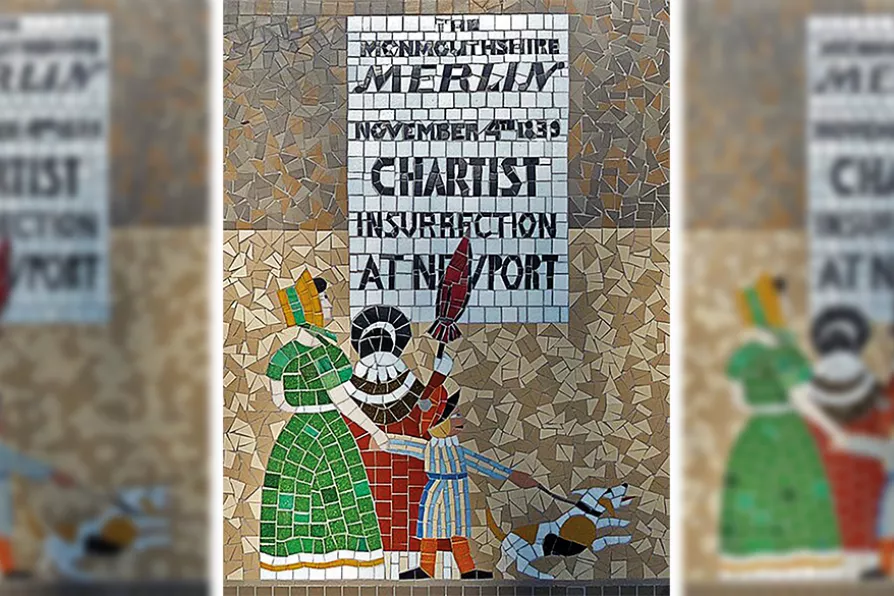This weekend, the NEU holds a special conference to debate changing its approach to organising teaching assistants, which a 2017 TUC agreement forbids. General secretary DANIEL KEBEDE outlines the choices before delegates

 A Chartist mosaic in Rogerstone, Newport
[Robin Drayton/Creative Commons]
A Chartist mosaic in Rogerstone, Newport
[Robin Drayton/Creative Commons]
THE role of women in the Chartist movement has often been neglected, even though they ruffled the Establishment’s feathers in their work as Hen Chartists and Lady Insurrectionists.
This year’s Chartism Day conference, at the University of Reading, succeeded in shining a spotlight on key figures including Helen MacFarlane, Frances Wright, Susanna Fearnley, Mary Grassby, Elizabeth Hanson, Mary Ann Walker and Sarah Theobald.
The event, staged by the Society for the Study of Labour History (SSLH), platformed 16 speakers, although only two were women. The voices of long-dead female Chartists filled the room, thanks mainly to Dr Judy Cox, whose work has uncovered the tub-thumping speeches and excoriating quotes from the Hen Chartists, as they were dubbed by the press.

Witnessing a war of words at a meeting on tackling militarism at The World Transformed, BEN COWLES spoke to a union rep who is organising against war from inside the arms industry itself, to hear about worker-led solutions to ending weapons production

Sisters came together last weekend for the landmark launch of a new women’s group. ROS SITWELL reports

ROS SITWELL reports from the Morning Star conference on ‘Race, Sex and Class Liberation’ last weekend

LYNNE WALSH reports from the Morning Star’s Race, Sex and Class Liberation conference last weekend, which discussed the dangers of incipient fascism and the spiralling drive to war










